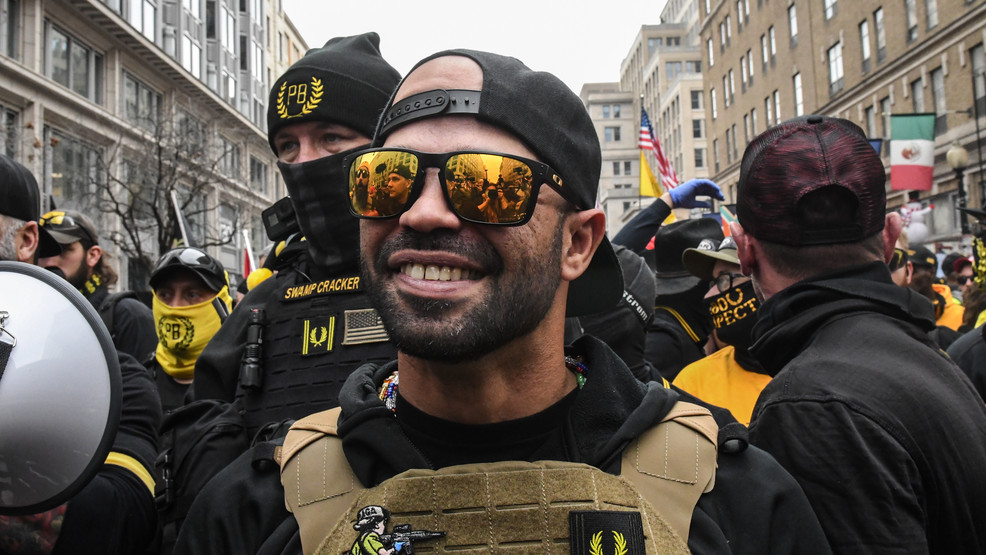

6 and asked the informant to make contact with them, suggesting that they might be Proud Boys. The records - provided to The Times on the condition that they not be directly quoted - show that the FBI was investigating at least two other participants in the rally Jan. They also raise new questions about the FBI performance in tracking the threat from far-right groups.

6 - excerpts from his interviews and communications with the FBI before, during and after the riot - dovetail with assertions by defense lawyers who have argued that even though several Proud Boys entered the Capitol, the group did not arrive in Washington with a preset plot to storm the building. The records describing the informant's account of Jan. The identity of the informant, who was affiliated with a Midwest chapter of the Proud Boys, was not disclosed in the records. In lengthy interviews, he also denied that the extremist organization planned in advance to storm the Capitol, the records state. 6, and for months after, the records show, the informant denied that the group intended to use violence that day. The records and information from two people familiar with the matter suggest that federal law enforcement had a far greater visibility into the assault on the Capitol, even as it was taking place, than was previously known.Īt the same time, the new information is likely to complicate the government's efforts to prove the high-profile conspiracy charges it has filed against several members of the Proud Boys. 6 by the leadership of the Proud Boys, why he was cooperating, whether he could have missed indications of a plot or whether he could have deliberately misled the government. In this case, the records obtained by The Times do not directly address whether the informant was in a good position to know about plans developed for Jan. The use of informants always presents law enforcement officials with difficult judgments about the credibility and completeness of the information they provide. They indicate that the informant traveled to Washington of his own volition, not at the request of the FBI.Īt one point, his handler appeared not to grasp that the building had been breached, the records show, and asked the informant to keep him in the loop - especially if there was any violence. In the informant's version of events, the far-right Proud Boys were largely following a pro-Trump mob rather than carrying out any type of preplanned attack.Īfter meeting his fellow Proud Boys at the Washington Monument that morning, the informant described his path to the Capitol grounds, where he saw barriers knocked down and Donald Trump supporters streaming into the building, the records show. In the middle of the unfolding melee that shook a pillar of American democracy - the peaceful transfer of power - the bureau had an informant in the crowd, providing an inside glimpse of the action, according to confidential records obtained by The New York Times. The recipient of those texts was his FBI handler. 6, one member of the far-right group was busy texting a real-time account of the march. As scores of Proud Boys made their way, chanting and shouting, toward the U.S.


 0 kommentar(er)
0 kommentar(er)
